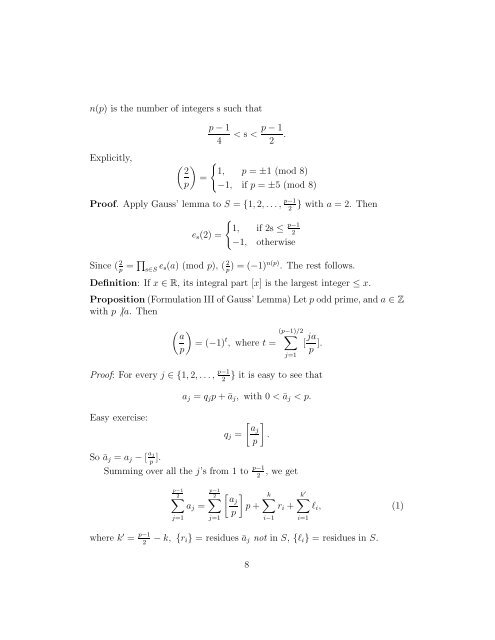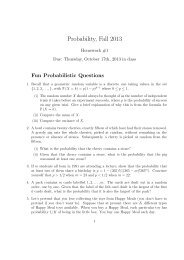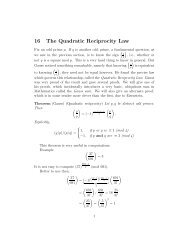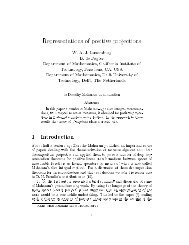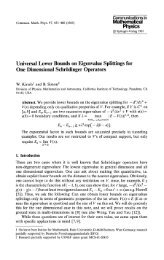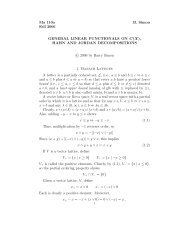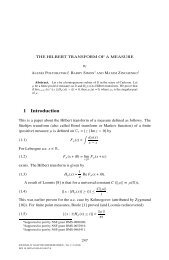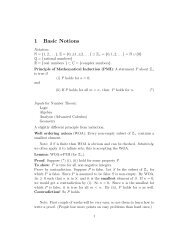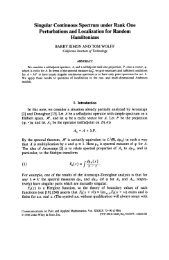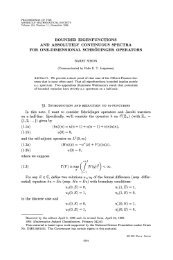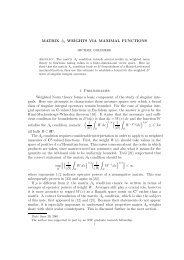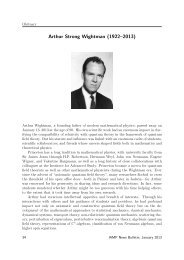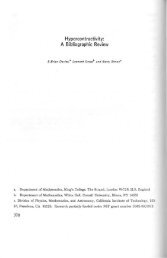15 Squares mod p
15 Squares mod p
15 Squares mod p
You also want an ePaper? Increase the reach of your titles
YUMPU automatically turns print PDFs into web optimized ePapers that Google loves.
n(p) is the number of integers s such that<br />
Explicitly,<br />
p − 1<br />
4<br />
< s < p − 1<br />
2 .<br />
<br />
2 1, p = ±1 (<strong>mod</strong>8)<br />
=<br />
p −1, if p = ±5 (<strong>mod</strong>8)<br />
Proof. Apply Gauss’ lemma to S = {1, 2,..., p−1<br />
} with a =2. Then<br />
2<br />
es(2) =<br />
<br />
1, if 2s ≤ p−1<br />
2<br />
−1, otherwise<br />
Since ( 2 <br />
= p s∈S es(a) (<strong>mod</strong>p), ( 2<br />
p )=(−1)n(p) . The rest follows.<br />
Definition: Ifx∈ R, its integral part [x] is the largest integer ≤ x.<br />
Proposition (Formulation III of Gauss’ Lemma) Let p odd prime, and a ∈ Z<br />
with p |a. Then<br />
<br />
a<br />
=(−1)<br />
p<br />
t (p−1)/2 <br />
, where t = [ ja<br />
p ].<br />
j=1<br />
Proof: For every j ∈{1, 2,..., p−1<br />
} it is easy to see that<br />
2<br />
Easy exercise:<br />
aj = qjp +āj, with 0 < āj


